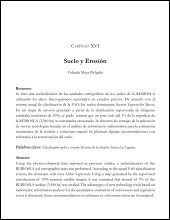Optimización de la supervivencia y respuesta inmune de Litopenaeus vannamei alimentado con dietas ricas en carotenos e infectado con el Síndrome de Mancha Blanca
Improvement of survival and immune response in Litopenaeus vannamei infected with White Spot Syndrome Virus and fed diets enriched with carotene
Autor
JOSE ANTONIO LOPEZ ELIAS
DIANA MEDINA FELIX
ANGEL ISIDRO CAMPA CORDOVA
LUIS RAFAEL MARTINEZ CORDOVA
JORGE HERNANDEZ LOPEZ
JOSE FERNANDO MENDOZA CANO
MARTHA ELISA RIVAS VEGA
Metadatos
Mostrar el registro completo del ítemResumen
"El virus del síndrome de mancha blanca (WSSV) es un virus con capacidad de réplica muy rápida y es extremadamente virulento, produciendo un impacto negativo en los cultivos de Litopenaeus vannamei donde provoca mortalidades de 80 a 100%. La inmunoestimulación se proyecta como una alternativa para disminuir este impacto. Bajo condiciones de estrés Dunaliella sp. es capaz de producir altas cantidades de carotenos, que tienen actividad antioxidante, desactivando radicales libres en los organismos y mejorando la respuesta ante una infección. Se realizó un experimento para evaluar la actividad de lisozimas, aglutinina, α-2-macroglobulina (A2M), fenoloxidasa (FO) y profenoloxidasa (PFO) en el camarón blanco, alimentado con dietas con 1 y 2% de Dunaliellasp. e infectados con WSSV. Los resultados mostraron que algunos componentes de la respuesta inmune como la actividad de lisozima, aglutinina, fenoloxidasa y profenoloxidasa, así como la resistencia a infecciones experimentales con WSSV en juveniles de L. vannamei fueron mejoradas por la adición de carotenos." "The white spot syndrome virus (WSSV) has the capacity to replicate quickly and is extremely virulent, producing a great negative impact in the farming of Litopenaeus vannamei, because the massive mortalities (80 to 100%) it may provoke. The immune stimulation is considered a viable alternative to diminish that impact. Under stress conditions, Dunaliella sp. is capable to produce large amounts of carotenoids, these compounds have antioxidant activity by reducing the free radicals and improving the response of the consumers to face infections. An experimental study was conducted to evaluate the activity of lysozymes, agglutinins, α-2-macroglobuliln (A2M), phenoloxidase (PO), pro-phenoloxidase (PPO) in white shrimp fed diets containing 1 and 2% of carotenoids from Dunaliella sp. and infected with WSSV. The results showed that some components of the immune response as lysozymes, agglutinins, phenoloxidase and pro-phenoloxidase, and the resistance of shrimp to experimental infections with Vibrio parahemolyticus, were improved by the inclusion of the carotenoids."
Colecciones
Ítems relacionados
Mostrando ítems relacionados por Título, autor o materia.
-
PROMOCIÓN DEL PERIFITON PARA EL CULTIVO DE CAMARÓN BLANCO: HACIA UNA ACUICULTURA ECOLÓGICA
DOMENICO VOLTOLINA LOBINA; JUAN MANUEL AUDELO NARANJO; MARIA DEL ROSARIO PACHECO MARGES -
Suelo y Erosión
YOLANDA LOURDES MAYA DELGADO


